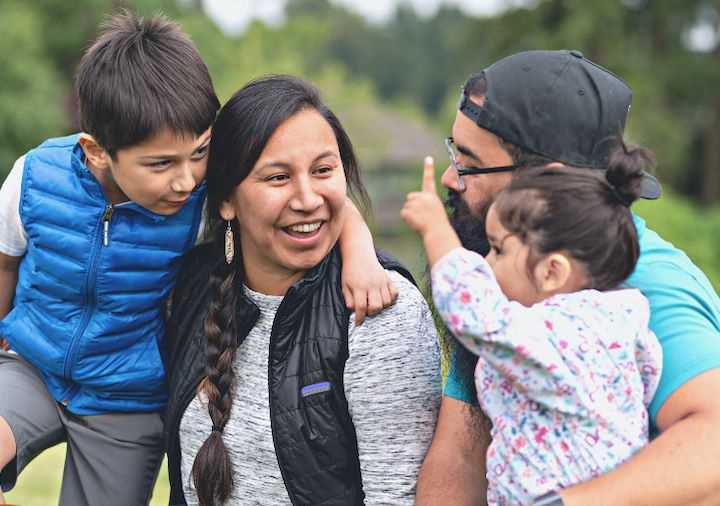$1 Million Grant Will Turn Health Plan into a Reality for Families in CGU’s Surrounding Communities

CGU, in collaboration with local community and academic consortium partners, has developed an innovative response to local healthcare inequities. That consortium has been awarded $1 million from the California Department of Health Care Services (CDHCS) to move that project from the planning stages to implementation in surrounding communities.
Earlier this week, CDHCS announced the selection of 25 teams across California to receive a third round of grants known as ACEs Aware “Preventing and Responding to Adverse Childhood Experiences-Associated Health Conditions and Toxic Stress in Clinics through Community Engagement (PRACTICE)” grants that create actionable ways to increase vital primary care resources at the local level.
Among the 25 recipients is the East Valley Community Health Center (EVCHC), which has spent the past three years collaborating with Tri-City Mental Health, CGU, the Community Translational Research Institute (CTRI) and Cal Poly Pomona across a number of community-based health promotion/disease prevention programs. Last year, the consortium was awarded a planning grant to develop a network and protocols addressing the physical and mental health needs of people slipping through the cracks in the state’s health services system.
Now, with this renewable grant, and together with the Inland Empire Health Plan and LA Care Health Plan, that plan can be put into place.
Creating a powerful health network
at the grassroots level
to help those who need it most.
“This project will be important both scientifically and for the people served in communities from the border of LA through western San Bernardino counties,” said Anderson Johnson, CTRI’s president and CEO as well as the founding dean of CGU’s School of Community & Global Health (SCGH).
When he looks at the state and local systems, Johnson says there are “huge gaps and discontinuities. There is little attention to upstream social, cultural, and environmental factors that give rise to health deficits and disparities and almost no meaningful integration with traditional clinical services.”
That is why CGU along with these organizations came together in 2019 to start devising a solution at the grassroots level for local communities.
“This is one of the biggest joint efforts our group has implemented,” said Professor Eusebio Alvaro (CGU professor of psychology and public health as well as Associate Provost for Research), who serves as Principal Investigator for CGU. “The project highlights the benefit of CGU partnering up with community organizations to engage in applied work in local settings. It’s a highly synergistic relationship.”
He further noted that “CGU’s partnership with CTRI enables both organizations to leverage their relative strengths – community engagement/partnerships and faculty and students interested in applied research, evaluation, and practice – to pursue collaborative funding opportunities that have a real and direct impact on the world.”
This synergy will establish a web of services for many people struggling from a variety of health conditions stemming from adverse childhood experiences (ACEs) and toxic stress.
EVCHC will provide the physical health services while Pomona-based Tri-City Mental Health will provide the outpatient mental health component. In addition to Alvaro, CGU is represented by Johnson along with current SCGH Dean Jay Orr (who chairs CTRI’s board). CGU will provide evaluation and communication expertise while CTRI will provide the overall coordination, lead workforce development as well and other professional development aspects of the work with support from colleagues at Cal Poly Pomona. The consortium will engage with Inland Empire and LA Care health plans to refine protocols and billing to enhance program sustainability.
“We’ve been working towards this award for a good three years,” Orr said, “and the realization that all of the hard work has come together like this is very exciting and satisfying. We’re grateful to be working with East Valley and Tri-City on such a critical situation in our communities.”

Toxicity, Childhood, and Getting Students Involved
“The focus of this project is on upstream factors that set the conditions for compromised health outcomes later in life,” Johnson explained, “specifically early life adversities and toxic stress.”
The seeds of many illnesses and chronic health conditions in adult life are often caused by a number of negative experiences in childhood, also known as Adverse Childhood Experiences, or ACEs. These include, according to a recent BMC Public Health report, “depression, anxiety, substance abuse habits, and detrimental health behaviors as they mature into adulthood.”
The new program will tackle these and other health issues with a multi-prong approach. CTRI leads the community and environmental aspects of the program and CGU leads the evaluation and communication components. The eight clinical sites of EVCHC and TCMHC along with CTRI will provide risk screenings, clinical services, and cross-referrals.
For Johnson, who has spent much of his career focused on improving the delivery of preventive and proactive health care screenings to vulnerable communities, the awarding of the grant is a powerful affirmation of this group’s mission.
“Our leadership in this undertaking certainly merits public awareness,” he said upon hearing of the announcement.
One further important element regarding this program involves CGU students.
CTRI will be coordinating services delivered by Tri Cities and East Valley, and current graduate students will be brought in to assist with the evaluation and communication sides as well as getting experience working with care providers.
“There are going to be a lot of chances for our students to get involved in research and internships,” Alvaro said. “One of the hallmarks of a CGU education is working in real-life situations. This project represents another exciting opportunity for our students to get an applied experience working with a highly transdisciplinary team.”
- Read East Valley Community Health Center’s announcement
- Learn more about CTRI
- Read the state’s full announcement of awards